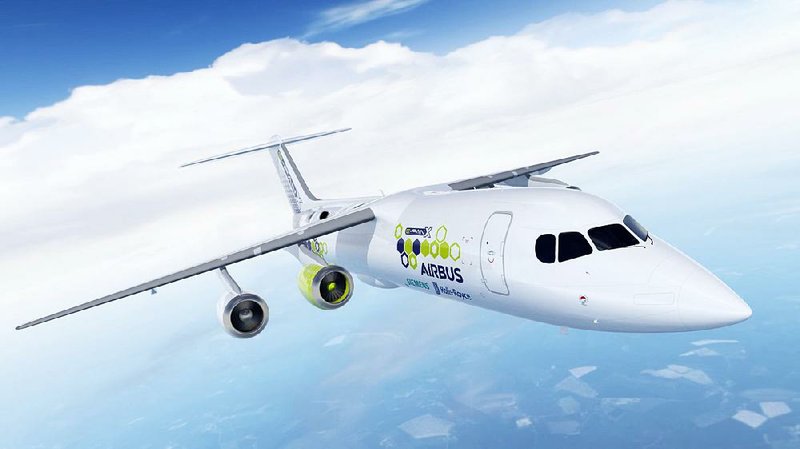FRANKFURT, Germany -- Airbus, Siemens and Rolls-Royce are teaming up to develop a hybrid passenger plane that would use a single electric turbofan along with three conventional jet engines running on aviation fuel.
The plane is an effort to develop and demonstrate technology that in the future could help limit emissions of carbon dioxide from aviation and reduce reliance on fossil fuels.
The three companies said Tuesday that they aim to build a flying version of the E-Fan X technology demonstrator plane by 2020.
The aircraft would be based on the existing British Aerospace 146 four-engine regional jet. The hybrid version would generate electric power through a turbine within the plane. That power would be used to turn the fan blades of the single electric turbofan engine.
If the system works, a second electric motor could be added, the companies said.
The companies said European plane-maker Airbus SE would be responsible for building the aircraft's systems into a working whole, control systems and flight controls. Britain-based Rolls-Royce PLC would make the generator and the turboshaft engine, while German engineering company Siemens AG would deliver the two-megawatt electric motor to power the engine. Rolls-Royce the aircraft engine maker is distinct from the luxury car brand owned by BMW AG.
Step by step, Siemens and Airbus are moving closer toward their goal of producing a single-aisle plane with a 20- to 40-megawatt electric drive. Siemens already demonstrated smaller aircraft with 60-kilowatt drive systems at air shows this year. The two companies initially set a goal to make a two-seater electric aircraft, dubbed the e-fan, that would have been used as a pilot trainer and tour operator.
The companies said they were looking ahead to the European Union's long-term goals of reducing carbon dioxide emissions from aviation by 60 percent, as well as meeting noise and pollution limits that they said "cannot be achieved with technologies existing today." Carbon dioxide is a greenhouse gas that scientists say contributes to global warming.
Other projects for hybrid or electric planes are in the works. Kirkland, Wash.-based Zunum Aero says it is working on a 12-seat hybrid-electric commuter jet. The company's website lists its partners as Boeing, JetBlue Technology Ventures and the Department of Commerce Clean Energy Fund.
Information for this article was contributed by Bloomberg News.
Business on 11/29/2017
